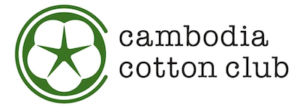Greek cotton has been contaminated with genetically modified seeds.
Greece is a cotton-growing region, and the EU has banned commercial cultivation of genetically modified seeds. People have also protested vehemently against test cultivation.
It has been reported in the past by the FAO (United Nations World Agricultural Organization) that 2.75% of the entire Greek cotton fields are genetically modified seeds. This is an area of 3642 hectares. After collecting 3,100 samples, they found that 69 were genetically modified seeds.
The Greek government has stated that the genetically modified seeds from the test cultivation may have been interbred by the wind. I could not confirm whether or not all the seeds were subsequently surveyed, as there was no information released by any public agency.
Even for experimental cultivation, it is not possible to seal the field (hōjo = field). If this were to be done, it would cost an enormous amount of money to secure sunlight and agricultural water. It is only natural that pollen would be scattered.
I have no information at all about the Greek seeds that the Tohoku Cotton Project is sowing this year. Genetically modified seeds are traceable through testing, so if you test them, you can be sure they are non-GMO.
Attempts to revive native cotton seeds are spreading throughout Japan. We hope that this will not affect the cotton seeds that came from India in Enryaku 18 (799 AD) and have been protected by our ancestors.
( to be continued )
